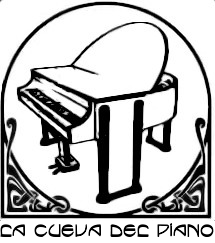The Ineffable
1. Prélude
The Prélude pays homage to the silence following the uproar of warfare. I imagine the subtle, fast, and crystalline notes of this movement springing from nothingness like the birdsong of the warbler that Ravel once heard with great emotion on the front after the din of battle. As his friend Hélène Jourdan-Morhange related, he was so moved by the singing of the bird that he vowed to compose a piece for it.
Thanks to graphical sound data compiled on the battlefield, we know that the sonorous intensity ranged from 120 dB—considered the threshold of pain—to 185 dB. One could hear the artillery from a distance of more than 300 km (186 miles). From as far away as London, it was claimed, one could overhear a battle being fought in France. Deafness became a typical war injury, obviously of serious repercussion for musicians.
An excerpt from Thomas Mann's novel The Magic Mountain accompanies the music of the Prélude. The quote is taken from the end of the book, when the young Hans Castorp, after his long seclusion in a Swiss sanatorium, finds himself enlisted in the German army. From 1912—the year that Mann started writing the novel—to 1924, the year of its publication, Mann's political opinion about the German role in the European war changed radically leading him to substantially modify the novel's manuscript before its publication.
The novel takes place in a Swiss sanatorium, a cosmopolitan microcosm that sheltered a small network of diverse individuals from all over the continent, revealing the complex zeitgeist of pre-war Europe. A sort of spacetime limbo is established where Castorp is suspended in seven hundred pages of introspective narrative, eluding his supposedly predetermined path as a young bourgeois engineer with the responsibility of contributing to Germany's industrial progress. After the long stillness of the sanatorium, the last few last pages abruptly reveal Castorp as a soldier, caught in the turbulence of the Great War's battlefields.

|

|



